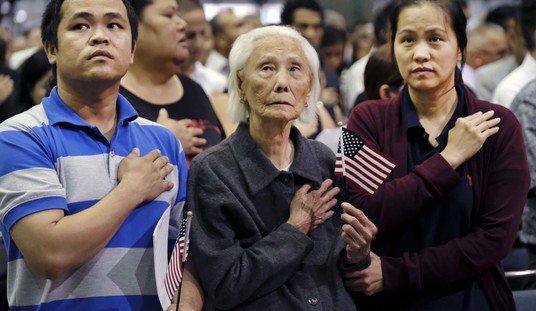Guest post from Rep. Louie Gohmert, Rep. Jeff Landry, and Rep. Scott Rigell
This week, the House will fulfill our most important constitutional duty by debating the FY 13 National Defense Authorization Act (NDAA). In accordance with the framer’s intent, this act is the primary check that Congress can apply to the Executive Branch on defense and national security policy.
Last year, constitutional conservatives raised the alarm bell about some provisions in the FY 12 NDAA; provisions that many were concerned would grant President Obama far reaching powers to detain American citizens without trial. The bill ultimately passed, but has become the subject of countless town hall meetings, tweets, and Facebook posts in the months since.
The debate has become so heated that many believe that the NDAA is a bill that deals strictly with detaining terrorists. It is much more than that. Aside from dictating how the military can handle any al Qaeda terrorists they capture, the FY13 NDAA deals with the full scope of national security issues. There is much in it, from a rejection of the Obama administration’s effort to raise health care fees on military retirees; to making sure the President doesn’t trade our missile defenses away to the Russians, that Conservatives can be proud of.
The real question before us is how to adjust the language from last year that has made so many so uncomfortable while still ensuring that we can fight and win the War on Terror. The base bill has already made important steps in the right direction. It includes the Rigell / Landry reassertion of the Writ of Habeas Corpus. This language firmly states that the 2001 Authorization for the Use of Military Force (AUMF) and the FY 12 NDAA detainee provisions do not allow for the detention of any person in the United States without the right of redress. Under this provision, all Americans have access to the Writ of Habeas Corpus.
The underlying language is being further strengthened by the Gohmert / Landry / Rigell Amendment which further states that no citizens’s constitutional rights will be denied in an Article III court pursuant to the AUMF. The best way to protect our rights is to put simple and clear language in the NDAA that lays those rights out. Between the new language in the base bill and our amendment, we are confident we have done that.
Rep. Adam Smith (D-MA) and Rep. Justin Amash (R-MI) have a competing amendment that simply goes too far. Their bill extends constitutional protections beyond U.S. citizens to any terrorist who is captured in the United States. We share the concerns of legal experts who worry that by granting terrorists greater rights if they are captured in America than if they are captured overseas, we are actually giving terrorists a profound incentive to attack us here at home. The Smith/Amash amendment grants foreign terrorists or foreign soldiers rights our own military do not have in court under the Constitutional Uniform Code of Military Justice.
Our approach is the better alternative. It protects our constitutional rights, but does not extend them to the very men who have been fighting for a decade to tear that great document down.














Join the conversation as a VIP Member